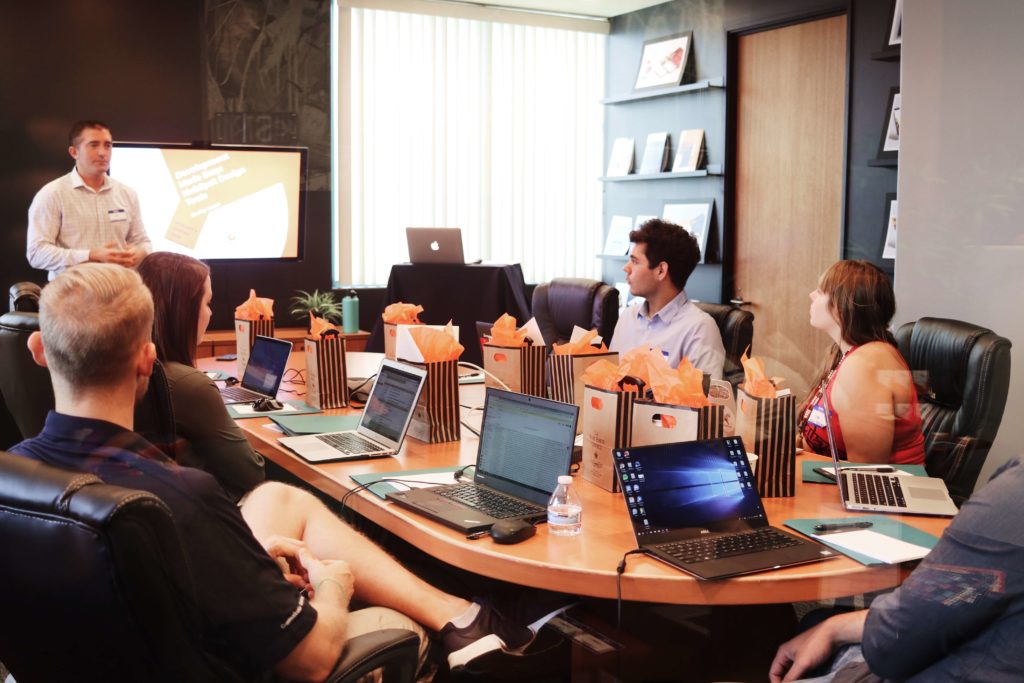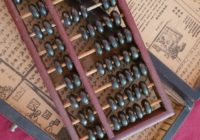
Chris Crook from Nature Research is my guest today. Nature Research just won a B&T, and the award itself looks quite beautiful, quite casually hanging out with the mags in their foyer.
Read on or listen in and find out about client intimacy, targeted curiosity, the importance of the middle ground role between super-technical and the client: the data translator role.
Find the podcast on
As usual I had a ball recording this: let me know what you think!

B&T award-winning company!
Cindy Tonkin:
Chris Crook from Nature Research. Everybody. Chris and his organization just won a B&T last year. Do you want to tell us about what the B&T is, Chris?
Chris Crook:
Yeah, well we won the award, which is the agency of the year, which was great. 2018. I think there was five agencies shortlisted on that and that was a great opportunity. I think that one of the main things for us was it forced us to articulate a lot of things about ourselves, which before that we hadn’t really done. A lot of the cultural assets that we’d been sitting on: at that stage we had been around for 12 years and hadn’t really thought about how best to talk about the culture we had developed and what that meant to us and how important it was in terms of who we are as a team and what that meant for our clients. And what means the people who work here and what it means for recruitment and how we work and how, I guess distinctive we are in the market.
Cindy Tonkin:
So the process of even applying for the award was in itself rewarding.
Chris Crook:
Yeah, it was incredibly rewarding. And we thinking about that and considering those questions and then articulating them in written form crystallizes a lot of things about your collective identity, which is valuable in and of itself.
Chris Crook:
And on top of that to win the award was magnificent! It was awesome. It was really kind of like when an under seven’s soccer team get their first Jersey! That was a real big day. And I suppose it’s nice to get the external validation cause you know, you’re doing well anyway, But then on top of that to get that award was really nice and a really nice thing for the team as well cause we all worked pretty hard but to get that recognition was pretty special.
Cindy Tonkin:
Fabulous! That’s great! So what do you guys do?
Chris Crook:
Well we’d like to think of ourselves as being in the consulting business. Strategic insights consulting. At the end of the day we’re a group of people who work with people, our clients. We seek to understand people that is consumers or customers. We just happen to use data to do so.
Chris Crook:
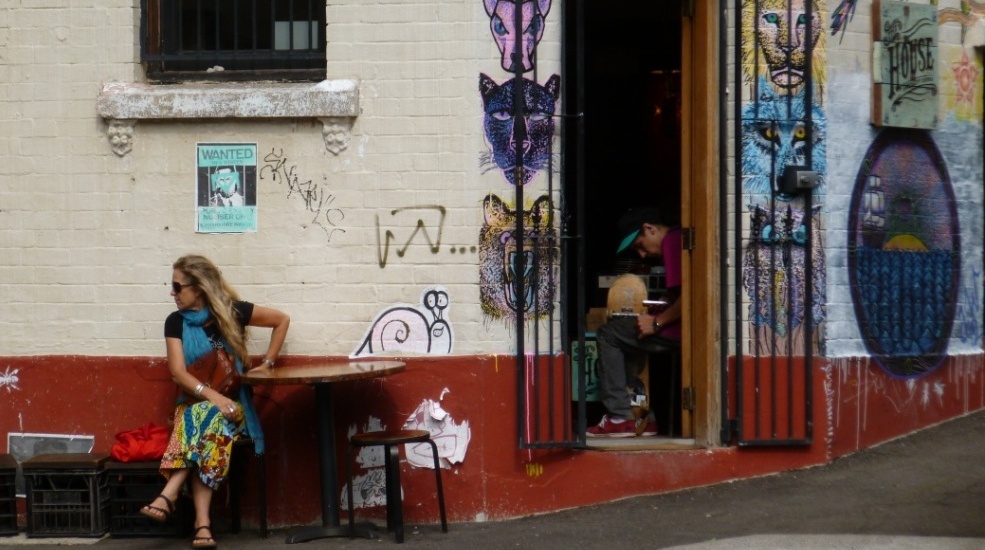
Human Skills, not tech skills
There’s lots of different types of data that we leverage. But what we’re trying to accentuate or sort of really focus on there in that whole thing are human skills as opposed to tech skills.
Chris Crook:
We’re not in the business of bringing in technology or offshore built tech or data or solutions or black box solutions which we could sell. What we’re in the business of doing is sitting down with our clients and understanding the problems that they’re trying to solve for. And then building interesting research or database solutions around those problems.
Chris Crook:
And what’s fascinating about that is that it involves creativity, listening, consulting skills, as opposed to hard edge tech based skills. So it’s quite exciting and there’s a great freedom in that for us.
Cindy Tonkin:
So in terms of the questions, I’ve got a heap and I always ask the same ones. So it gives us some consistency, because at some point I’m going to turn this into proper research, right? I’ve got information about stuff. So talk to me. What are your personal routines for working smarter? Are there things that you do that give you an edge you believe, or that stop you from losing your edge?
Chris Crook:
I suppose I gave up long ago on forming a distinction in my mind between work and non-work life. I believe that the human brain can solve problems when and how and where it wants to
Cindy Tonkin:
In the shower is often the place.
Chris Crook:
And that if you fight that you’re fighting a losing battle. I mean I think we all know that we can get the best answers to the most complex questions at times that are well outside the nine to five ethos that’s kind of imposed on us. Equally flexibility works the other way as well. One should, you know, take the time within those hours to exercise flexibility the other way as well. So I sorta don’t work in that black and white kind of way. And when you start your own business and run your own business, there’s a degree to which it’s always with you whether you like that or not. I think that one of the key things is you need to learn very early on not to fight or resent that, but to embrace it and own it and to learn the ways of managing and dealing with it.
Chris Crook:
Even on a holiday a week away or a month away you’re never truly switched off. What you learn to do is switch on and off in much finer or short periods of time. I might check an email or write one and be on for 10 minutes, but then I’ll switch off for three hours and then on for 10 minutes. But that’s a learned skill. Which is fine. So within that as well. I believe that people are capable of adaptation and learning through the course of time. So that’s sort of a macro approach to work that I have.
Cindy Tonkin:
It’s like running a farm, isn’t it? It’s not like the farm ever stops growing stuff. You just have to at some point walk away from the planting or the sowing or whatever you’re doing and check in.
Chris Crook:

On running a business
That’s right. And I suppose that reflects as well – to be successful and running a successful business you need to be passionate about it and involved in it. And that’s not a nine to five kind of thing. That doesn’t mean as well that one is a workaholic because I place a hell of a lot of value on things that are outside my work life, like family health, wellbeing, fitness, et cetera. And without those things, to be honest, work doesn’t really mean anything at all. So it really is about balance, but it’s about exercising the right flexibility and freedom to do what one needs to do to mash it all together. And then within that, the way to do that is to be incredibly organized with your time to maximize jamming it all in really.
Cindy Tonkin:
How do you get incredibly organized with your time? What habits and patterns do you have? You run a diary, I’m assuming. Are there other things? Do you have someone who looks at your diary to you?
Chris Crook:

Managing time
No, no, no. I’m a self-diary-running kind of person as opposed to letting others people do that for me kind of person. I do run an Outlook diary and I kind of stick to that and I also adopt. I don’t have a set and forget policy on that. And it’s a constantly evolving tapestry that evolves on a daily half, daily, few early basis. One can’t set their diary in the modern world on a weekly basis and then think it’s set and forget. It’s constantly chopping and changing and one’s manicuring and curating it the whole time. As things evolve and change and you’ve got to be moving between organizing one’s life.
Chris Crook:
And the few days or weeks ahead and the now. The micro and the macro. And that’s again a learned skill. I think one of the other learned skills is negotiating the tension between focusing on deep tasks and deep thinking, which have to do with today and tomorrow and now, versus longer term, thinking about next week, next month, next year. And that’s an incredibly hard thing to do. And that takes discipline to carve out the time to do the latter.
Cindy Tonkin:
Because it’s the important not urgent tasks that need to get done. If they don’t get done they become urgent and important.
Chris Crook:
That’s right. And that’s a challenge for me. It’s a challenge, but I think certainly everyone in this business in different ways but there. We spend a lot of time with people in the business like mentoring and coaching them on how to negotiate and I guess approach that challenge.
Cindy Tonkin:
To push back on things that cannot be done and the acceptance of “this will have to be done and I’m going to have to work out a way to make it happen”.
Chris Crook:
That’s right.
Cindy Tonkin:
So how did you get to now, where did you come from? What was your path to this?
Chris Crook:
I worked agency side for several years before this. I worked for a multinational for awhile. I asked myself the question there after some years, do I want to continue on this path and move up the chain perhaps into a regional manager role, which would mean distancing myself ultimately from what got me into this in the first place, which was problem solving, doing consumer research, hands on the tools, et cetera. I felt that the answer to that was that I was interested in staying close to being a researcher. So I took the opportunity to start the Melbourne office of a Sydney business up a few years ago, which was a great opportunity because it gave me the autonomy and freedom to drive growth in that business yet backed by what was a great brand. That gave me the self-belief to start my own thing. And for various reasons, the timing was right for me. What is now 13 years ago to do this.
Cindy Tonkin:
Yeah. Fabulous. You’ve always been in the insights area. You haven’t skipped over from food technology [editor’s note, this isn’t a random idea: see Mohammad Elteibi’s interview: he came from food tech].
Chris Crook:

Chris’ Background
My background before that I was a social scientist. So it’s always been stayed within that specialty.
I did spend some time client side at Telstra in an insights role there, as the Director of Insights and Analytics. About a dozen years ago. And that was really valuable because when you get the perspective of looking at the same things you do from the client side, you have a penny-drop moment when you realize what is that our audience now really needs from our work. And when you understand that, it lets us really focus our effort on what counts.
Cindy Tonkin:
Exactly. Walking a mile in the shoes of the customer because you are the customer!
Chris Crook:
Correct. Yeah. That was really, really valuable.
Cindy Tonkin:

Better data people
Usually I ask what’s a better data person? But given that you are more insights, what makes a better insights/data person in your experience?
Chris Crook:
To me anyone who works in research insights, data analytics. I think of there being a spectrum of skill sets and everyone I see, I think of a range of skill sets from backroom people through front room is how I think of it. And the most valuable territory is that in the middle. There are a lot of people who are very, very backroom who have to possess incredible analytic skills, technical skills, but perhaps limited social interaction skills or relationship management skills. Their ability to deal with clients or to understand business or marketing problems and add value in a client relationship may be limited.
Chris Crook:
At the other end of the spectrum you’ve got people who have the gift of the gab, really understand business and marketing issues but don’t have a strong grasp of anything technical. They are also at one end of the spectrum but in the middle people who can move fluidly between both who’ve got strong technical background but then also have an appreciation and understanding of business and marketing language and how large organizations work.
Chris Crook:
That is an incredibly valuable asset or skill to have.
Cindy Tonkin:
And the aspects of that are partly that empathy of which you spoke before, working client side, so you could understand how clients work. Part of that is one of those skills. Are there any other skills?
Chris Crook:
I think a lot of it comes down to personal skills around emotional intelligence, skills around active listening and understanding and the skills around being able to perceive and understand what a client is ultimately interested in and needs out of professional relationship one has with them.
Chris Crook:
So then one can work out how one uses one’s most valuable assets, their time, in addressing the client’s needs. They’re not technical skills, they’re applying relationship skills, softer skills, people skills. But if an individual can have both those skills and then the conceptual skills to frame up a problem in conceptual terms and then the technical skills or some degree of technical skills to either do technical work themselves or to have a meaningful conversation with a highly technical person, that’s a very powerful skill sets and both combine.
So one of the language terms that we use today is that of the data translator who is the person who, if you think about that, has the wherewithal to talk to a person in a client organization who might not be particularly data savvy. A business person who’s got commercial needs or they have questions or information gaps they need filled. The data translator is the person who can work out what are the sources of information or data I can procure to answer my client’s needs and make sense of those and simplify, condense, clarify and build confidence in my client in relation to those questions. And that skill set is not just a technical one. EI applied and consulting. Like the role that we as an agency try and play is right in that sweet spot.
Cindy Tonkin:
You’ve got insights on both sides of the fence.
Chris Crook:
It also makes you data agnostic. Whether you need qualitative data, quantitative data, data from social media, scrapings financial data, primary research data transactional database data. It doesn’t matter where the data’s coming from, they’re all valuable inputs that one can leverage to answer the client’s questions. And technology also plays a role in that whole equation as well. So then that’s why when we discuss and describe ourselves, we accentuate and stress the human side of things as opposed to the data or the tech side of things.
Chris Crook:
Because to us, at the end of the day, the data and tech, they’re ultimately a commodity. The value that can be added to the commodity is through the human talent. And in the end, we want to solve a problem.
Cindy Tonkin:
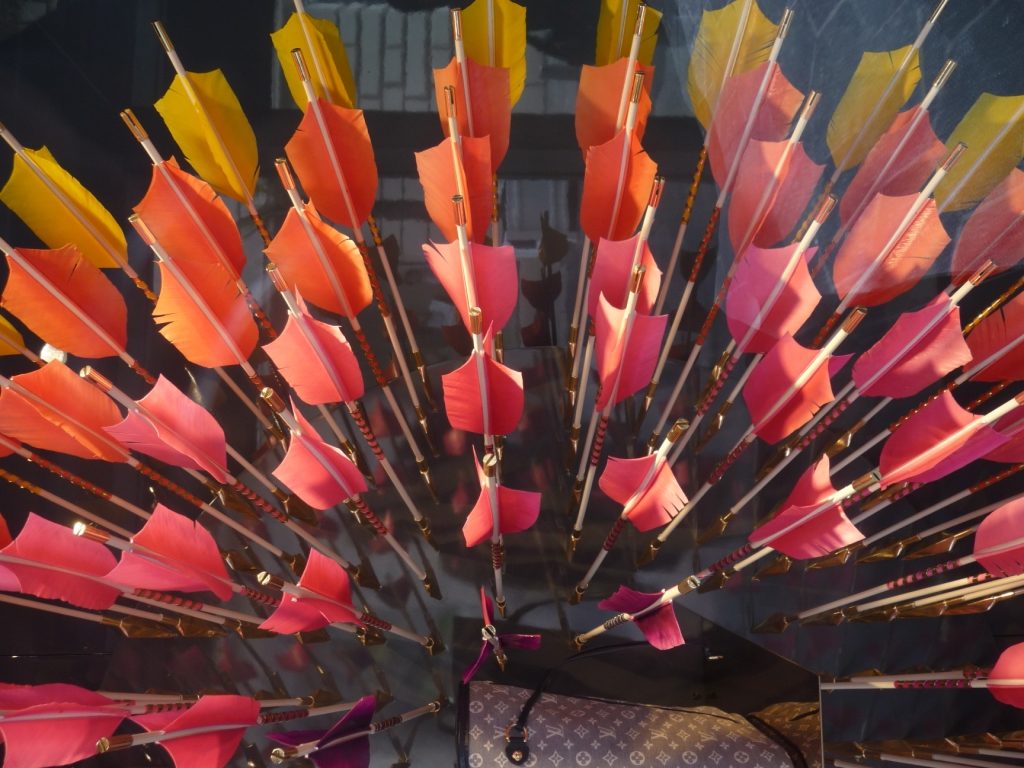
Recruiting for insights and analytics people
Nice. Talk to me about how you recruit?
Chris Crook:
So if you’re recruiting, you’ve got a special job description there, how do you go about making sure you get the right person?
Well, a lot goes into that. We recruit directly from the market. We’ve also got external recruiters that help us in that respect. But once we have people in the conversation with us the first thing we do is take our time to make sure we get the right people. So we’re quite risk averse. We’re a small team of 25 to 30 people. It can change the balance. And culture is super important: to have some cultural fit and making sure that people are going to add to and bring something new. But also, you know, not upset the apple cart. It’s incredibly important.
Chris Crook:
We get people in the team to meet people before we hire them, so they want to give the rubber stamp. But when it comes to skills testing, there’s a couple things go into that. One is technical. Solve this problem, use this database. But the degree to which it is technical depends on the role.
Cindy Tonkin:
Some kind of case study?
Chris Crook:
A case study, but all the way through we’re watching really, really carefully for softer human relationship skills.
Because the other thing we really place value on is around how well they’re going to work with people in the team. How well are going to work with our clients? Can we set them loose on clients A, B, and C? To what degree can they operate independently in that regard? And that’s on top of the technical skills which support the work they’ll be doing. So it’s a real mix of evaluation on those things. It’s hard.
Cindy Tonkin:
So you get everyone into a room and ask do you think this person will fly?
Chris Crook:
That’s right. We do. It’s sort of a committee. It’s a collaboration. It’s a group of people deciding whether the feel is there or not, but is an incredibly important decision to get right. If you do get it right, what you have is a team which harmonises and sticks together really well, and that stays together through the course of time.
The other thing that we have done really quite well in the last few years especially is worked a lot internally on ways of working and building as an operating rhythm and culture, which gets great internal communication happening and collaboration occurring. Just through lots and lots of conversation and affecting change. Maybe what a big company would call transformation. Our version of transformation is a conversation, conversation, conversation and talking about key themes and why they’re important and then talking with people about what needs to be done and the benefits in doing so.
Cindy Tonkin:

Creating a culture
What kinds of things do you talk about?
Chris Crook:
Some of the big themes, what some of the big agency themes for us are around really getting close to understanding your clients. So we call it client intimacy. It is important. Something we call targeted perfectionism, which is this idea of honing in on exactly what is important to the client and listening very, very carefully to that. And then using your most valuable resource, your time to address those things as opposed to the things which are not as principally important to them, which we might be curious about, but maybe it doesn’t solve their problem. Which is to do with active listening. And there’s an efficiency play in there. There’s also a meeting clients’ needs play in there as well, because all of our clients today are living in the corporate world of limited time, they don’t particularly have an appetite for long PowerPoint decks. What they want is the answer to their questions articulated succinctly on a plate. Not having to sift through a hundred slides to find the answer. They’re looking to us to give them the answer in an easy-to-digest way.
Cindy Tonkin:
Hence the targeted perfectionism. A three slide deck that tells them exactly what they need.
Chris Crook:
Three or twenty but not a hundred.
Cindy Tonkin:
Exactly it’s like the pecha kucha or ignite format. You’ve got five minutes. The slides advance every 20 seconds. You just have to fit your world into that five minutes.
Chris Crook:
Yeah, that’s right. I sort of believe that the more the length of a PowerPoint presentation blows out, the more it’s becoming a self-indulgent exercise in justification.
Chris Crook:
So they are the two big themes. The other internal one is probably “don’t be a silo” in a way. You’ve got 25 great people here and rather than sort of forge it alone and be an individual researcher power house, leverage the colleague over there because there might be something that they can add and next time you can add something to them. And if we can get that right, it’s called teamwork and collegiality and it might take a little longer this time, but next time it’ll be a time gain.
Cindy Tonkin:
Cool. talk to me about professional development for yourself. How do you professionally develop, besides the fact that your clients are giving you obviously new challenges every second of the day? How do you keep up?
Chris Crook:
That’s a good question. I suppose there are two aspects to my professional development. One is around growth in managerial and leadership stuff and the second is within technical areas of capability for the business.
Chris Crook:
With the first of those, my trajectory has gone through the years of being hands on researcher through, you know, early stage formation of business owner through growing the business up. And a lot of that is learned just on the job. And having an open mind. And then there’s a bit of trial and error and stuff as well. A lot of penny-drop moments as well when you realize what works and what doesn’t and thinking through things. I read things as well.
Cindy Tonkin:
Favourite books or recent books that you have read, articles or sites that you rely on?
Chris Crook:
No nothing particularly notable. There are things that I’ve read over the years that form a generalized perspective about a model or paradigm of leadership and whether I aspire to wanting to be as opposed to not wanting to be.
It’s about trying to create a culture of openness and inclusion and freedom and a company which is flat and where people feel like they have the capacity to influence. Really even the antithesis of a large multinational where someone doesn’t feel like they can go and talk to the senior person because of hierarchy or where someone thinks, “Oh, I’ve got a great idea. But I don’t feel empowered to raise this topic because I’m not allowed to” or the disheartened version of that, which is “there’s no point in raising this because nothing will ever happen”.
Whereas the culture we’ve created here is one where any person at any time can come to me or any of the other senior people and say, “Hey, I’ve got an idea. Here it is. What do you think?” And what happens is that we stop what we’re doing immediately and say, “that’s a great idea” and issue the challenge of “let’s get on with it and can you lead it?” And I’d love to see it done in two weeks. You know, I mean, it’s not two weeks. I mean it’s a week. Maybe it’s scary, that’s the sign to me of an organization which moves quickly and empowers people to take control and responsibility of both their own destiny. There’s no barriers and nothing holding people back at all, but also they can influence agency direction as well.
So there’s a freedom in that and the capacity to influence. The other thing about the places that people have got to be up for the adult conversation as well.
We’re a feedback culture and we believe in giving people feedback constantly along the way. Cause inside feedback is where people grow and all of our people say they really value that and want that.
There are so many examples in this business of where people have grown a lot in their professional lives because we’ve had the courage to give them careful, constructive feedback sometimes on topics that are pretty kind of hard to talk about and pretty close to personal issues. But because we’ve done that and they’ve been okay with us talking about them and I’ve taken them on and we’ve sponsored external coaches to talk and help people in their journey. They’ve prospered and profited and been promoted or whatever the outcome of that is. But also the product of that is trust: two-way trust, because there’s integrity and honesty in the conversation as opposed to avoidance of the truth, which I believe undermines the strength of the relationship as well. That’s what I mean by the adult conversation.
Cindy Tonkin:
There’s no comfort in the growth zone. There’s no growth in the comfort zone. So we’ve got to be able to be uncomfortable to make change, which means we have to bring up those topics that aren’t necessarily something that be brought up in a bigger organization. They would be more likely to let it ride.
Chris Crook:
That’s right. It’s not our responsibility. I think the other thing is our behaviour as senior leaders in the business: consistency of decisions and behaviour and the treatment of others is incredibly important in every respect. It sort of sets the tone
Cindy Tonkin:
And underlying that is a reflexive self-reflective journey. Basically everything you’ve spoken about essentially says “I’m working on myself all the time. I’m working on what I’m doing. How am I doing this and what do I do?” You’re a learner. Your brain is learning all the time and you’re learning from that and making a difference. And I don’t think everybody does that.
Chris Crook:
We’re pretty self- deprecating as well. And when I say we, so Peter Stuchbery. my business partner and I, where we’re self-deprecating and constantly trying to make it clear to people that we really don’t think that we’re perfect.
Cindy Tonkin:
Oh nobody is, if you aren’t working out what you can do next, what are you doing? But the answer is I guess that’s how people end up being boring. That’s probably the worst thing I could say about anyone. Oh my God, they’re boring.
Chris Crook:

Professional Development
The other example is the technical capability stuff. Building or sort of growth, which is like individual growth but then also plugs into agency capability as well. Part of that’s about reading and staying tuned into industry developments. Part of it’s about plugging into global agendas as well. So Peter and I have just come back from a an important conference over in Europe something called ESOMAR Fusion. So ESOMAR is the European Society of Market research, which is the main kind of global body. And there was an important conference. We went to in Madrid a few weeks ago, which is all about the future of data analytics.
Cindy Tonkin:
Yeah. Because everything’s moving so quickly.
Chris Crook:
And that’s just an example of us plugging into that to both validate things that we’re already doing and also give us a window into what people in Western and Eastern Europe and North America are doing
Cindy Tonkin:
Looking for the next big thing. And do you speak at conferences too?
Chris Crook:
We do. We did. We didn’t speak at that one. That was more of a learning and development trip. But yeah, we’re only on the ground for three and a half days. But really we enjoyed ourselves as well.
Cindy Tonkin:
Did you stay awake for the whole time? I’d have been just wrecked! Flying to Europe, the first day is just lost.
Chris Crook:
We shook off the jet lag on the last day and then we got on the plane to come home and had it all again. So it was a bit of a problem!
Chris Crook:
There’s a local national body for the research industry as well. We regularly speak at those conferences and cause they’re really innovating in different methods that we work in here as well. And one of the things we do is also invest in self-funded research here.
One of the topics we’ve just done a lot of work on is data privacy and security, looking at consumer attitudes toward sharing personal data online and the exchange of that for targeted advertising, et cetera and how that plays out.
Cindy Tonkin:
And then you publish that.
Chris Crook:

Publishable insights
We do. So like Mark Ritson picked it up and published it in the Australian and in Marketing Week for example. But it’s also a topic which is hot. So all of our clients want us to go out and present it to them.
Cindy Tonkin:
Nice reason to get back to see the clients.
Chris Crook:
Correct. Yeah, that’s a good example of how to drive customer intimacy as well. And there’s lots of it and we’re doing a piece of work right now on sustainability and we’ve done something recently on meal delivery services and Uber eats because that’s a massively growing industry, which most of us use pretty regularly as well.
Chris Crook:
That’s just good examples of that as well. So yeah.
Cindy Tonkin:
So part of your professional development is essentially doing research that’s not a client thing, but that actually feeds your curiosity in a targeted manner. Also, it gives you exposure to new ideas that feed into you constantly.
Chris Crook:
Yeah, we’ll identify topical topics and then we’ll do research on them and then the advantage of that for us is that we own the data and the information and we can do what we want with them for our own PR purposes.
Cindy Tonkin:
It’s professional development and it’s business development. All wrapped up in one.
What about complex explanations because lots of this stuff would be quite complex, how do you approach those?
Chris Crook:

Complex Explanations
It all depends on the audience, ultimately and sometimes complex explanations can be complex if the audience wants or needs the complexity. So for example Peter is an actuary, my business partner, and if he’s dealing with a room of actuaries or analysts, then the level of complexity is high. But if it’s talking to a group of people who are far less numerate than that, that needs to be boiled down. And that fits really well with the general skill set of the business, which is ultimately about taking complexity and simplifying or boiling it down into simplicity. It’s kinda just fundamental to our sort of DNA of how we do that. We don’t have a straight forward single off the rack process of doing something. We don’t generally use analogies or different ways into that, but I think that the rule of building up the reveal of information to immerse someone slowly into complexity is always a good tactic.
Cindy Tonkin:
Start with what they know as opposed to what they don’t know?
Chris Crook:
Exactly. As opposed to dropping them in it.
Cindy Tonkin:
“The answer is 42” now we’re going to have to explain to you what the hell that means.
Chris Crook:
That’s right. I mean even in the most basic quantitative research presentation to a non-quantitative audience, if a slide contains more than a dozen numbers on it, if the presenter is not very, very conscious of that in how they present that slide, it is overwhelming and the audience can be lost and totally bamboozled because their ability to digest and consume, make sense of that is just simply not the same as that of a different audience or the presenter .
The presenter themselves already know what’s going on in a slide.
Which means that the role of the presenter there is not just in that instance about saying what the implications of the slide are, but perhaps carefully walking through what the slide is actually showing in a more ground up kind of way. So it’s kind of educational. So people can have their hand held through it and then talking about, “and what it means is the following”.
So you take people on the journey with you and I suppose implicit in that whole thing again comes back to client intimacy.
Chris Crook:
And knowing your audience, it’s just so important because all of our clients, there’s no two of our clients that are the same. They’re all different and how we work with or service one, it’s got to be totally a function of who they are, the pressures they’re under, what they’re being asked to do, what’s on their mind, how numerous they are, how they digest information, what the organizational culture is. When it comes to the role of data, what kind of evidence do they need to make decisions? Is it heavily quantitative or is it more qualitative in nature? What is it that drives them?
Cindy Tonkin:
Do they want you to just tell them or do they want you to step them through it. So it becomes a customized explanation.
Chris Crook:
That’s right. So do they want us to make a recommendation or do they just want the evidence…
Cindy Tonkin:
So they can make a decision themselves.
Chris Crook:
Correct.
Cindy Tonkin:
From three options.
I keep thinking of the Hans Rosling videos on Ted, I’m sure you’ve seen it, cause everybody has. Where he takes you through a whole heap of data, but because of the way it’s animated and because of the way he presents it, it’s accessible. Yeah, it’s beautiful work. If you haven’t listened to Hans Rosling go listen to Hans Rosling.
So I want to ask you about meetings. So I’m currently asking people about meetings and how much time people spend in meetings and what makes them better and what makes them worse. Do you have opinions on meetings?
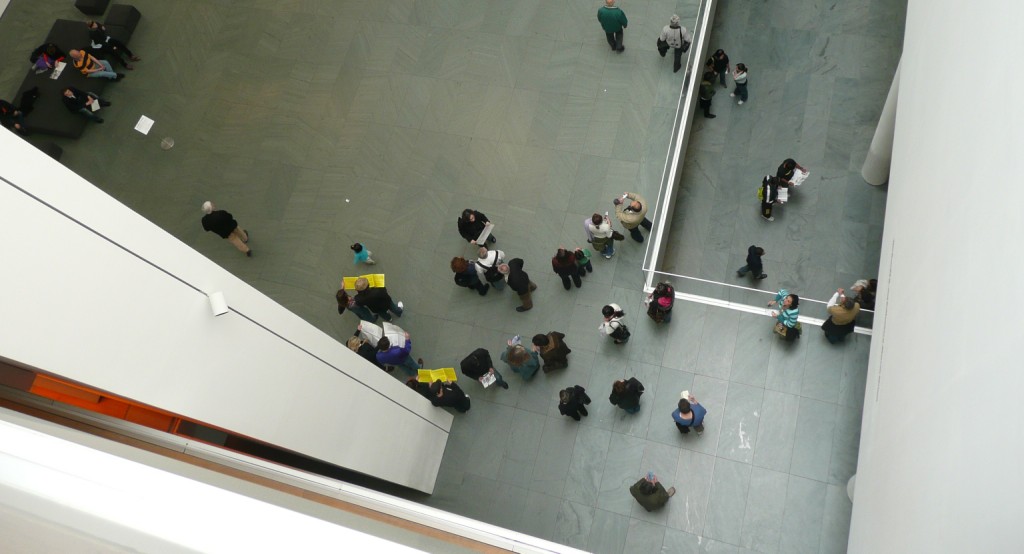
Meetings
Chris Crook:
Oh yes! I did spend time working in a corporate, which I mentioned before, and I have a very clear memory of that being a meeting culture place where it seemed that every meeting had two halves. The first half was talking about what happened in the last meeting and the second half was almost discussing what we were going to do in the next meeting,
Cindy Tonkin:
But never actually making a decision today!
Chris Crook:
And this would happen in every meeting and every day was full of meetings every day, which meant that no one ever did actually any productive, tangible work including me.
Cindy Tonkin:
Until after the day was ended.
Chris Crook:
Which imparted a lot of stress on everybody and it wasn’t particularly fun, which has implications for work life balance, right? If you believe in that stuff, because there was no balance, it was just chaos because of the dysfunctionality of meeting culture. I suspect that PowerPoint was a little grenade in the middle of that, a weapon being passed around to encourage warfare. We are really here now not big into meetings at all and don’t believe in meetings for meeting’s sake. We believe short meetings are good meetings and getting to the point as quickly as possible. Sure set up a meeting, because perhaps the most important thing that a meeting represents is the bringing together of people, right?
No more than that. And that is a very, very important thing. Even in a small company like mine where there’s 30 people, I guess what’s the word? The forces of nature mean that people are drawn apart, different schedules, different client meetings, holidays, whatever it might be. The organization needs to do everything it can to bring people together. Now meetings are one mechanism whereby that can occur, but within the meeting, if one’s not careful, meetings can blow out and just consume an unnecessarily long period of time and become a thing unto themselves. The way we do with that is simply that if a 60 minute meeting has been set, we work through them quickly and if an answer is found after 20 minutes, then we stop the meeting and we just go back to doing what we were doing. On the other hand, if we need longer, then we take longer. So it’s a pretty flexible approach.
Cindy Tonkin:
A thought has occurred to me. How do we distinguish between discussions and meetings? Cause you can have a discussion between four people that’s incredibly productive. While we’re making cup of tea. Just as easily you can have a meeting with four people that isn’t productive. Is there a difference between a discussion and a meeting?
Chris Crook:
Maybe the distinction, the point, I think one of the things that organizations fail to do often is take action. Yes, there’s a lot of discussion. There’s a lot of hot air, but often not a lot of action. A meeting is something that should result in action. And a lot of meetings don’t result in actions.
Cindy Tonkin:
Kind of catch ups and reiterations as you say, “Oh, here’s what happened last time. Here’s what we were gonna do”.
Chris Crook:
Now a discussion could be a better discussion if it led to an action. If a discussion was to lead to a meeting to sort of more formally discuss the discussion with a view to lead into an action.
Cindy Tonkin:
Exactly. Now we sound like we’re in the public sector!
Chris Crook:
Maybe call them a committee. I think there probably is a distinction. But what people should be trying to do is constantly try and work out what next and so what. Because what takes people forward and what takes organizations forward are actions and tangible steps, not just words. And it’s very easy to talk. And the more people that are involved in discussions, unless there’s clear articulation of roles and responsibility, it’s so easy for actions to fall by the wayside. And that is even more true in large organizations, you know. So I think, I don’t know if there’s a distinction between a meeting and a discussion, but I think both could benefit from decision-making and action-taking.
Cindy Tonkin:
Yeah. Yeah. That’s interesting. Cool.
What about favourite charity? Do you have a charity that’s your favourite charity? If so, what is it?

Favourite Charity
Chris Crook:
Well, we at home we regularly give a lot of goods to what’s called St Kilda Mums, which is a local charity, which gives predominantly products to do with babies and infant children to mothers and families that are in need.
Cindy Tonkin:
Nice.
Chris Crook:
Lots of different stories behind what is defined by “in need”.
Cindy Tonkin:
Someone else makes that decision.
Chris Crook:
Correct. Yeah. But like, we’ve got three kids. One’s a baby who’s just coming out of certain stages or whatever. So we’ve got cots, prams, clothes or whatever. And so every time we go through a certain phase and don’t need stuff anymore, we’re definitely having no more kids. So we’re just gonna give it all to St Kilda Mums. Because your ability to directly, positively affect someone’s life is immediate with that. It’s very different from giving money to large organizations where you don’t really know what happens to it.
Chris Crook:
In business we do a lot of pro bono work as well for organizations that we feel some degree of affinity with. We’re doing some stuff right now for Movember which was cool.
Cindy Tonkin:
By the way, Chris is sporting a Movember mo’.
Chris Crook:
And last year the team raised $10,000, and this year we’re getting close to that as well.
We did some interesting pro bono stuff this year for the Alfred Hospital. And various other organizations as well. It is nice to be able to do that.
And often the work we like doing the most, while we have a lot of large clients, often the most fulfilling billed work we do is for small companies that don’t do a lot of insights work. So when you do deliver a project, it’s really ground-breaking for them cause they haven’t had empirical evidence about the consumer customer ever. And even if it costs, well nothing, in the case of pro bono or you know, a very, very small amount to them, it’s all sort of a game changer. And that’s really cool.
Cindy Tonkin:
It’s not so much charity as just helping.
Chris Crook:
Yeah. It’s cool. It’s nice. It’s good.
Cindy Tonkin:
And maybe instrumental in their business not going under or doing better.
Chris Crook:
I think wrapped up in that as well is that we never forget that we were a small business once as well. So if a small business approaches us, we’ll help them. And that’s cool because one day they might be a big business and they kind of deserve the help. And that’s totally fine with us.
Cindy Tonkin:
Exactly. Yeah. So is there anything you want to say before we finish up? Damn, what a challenge.
Chris Crook:
What a challenge? Not really. I think we’re living in really interesting times when it comes to marketing insights, data analytics, data science. I think a lot of people, we don’t really know where it’s going or how quickly and how long it’s going to take to get wherever it’s going. The skill set is rapidly evolving and I think that the area that’s gonna profit for people trying to hone and tune this skill set and the capability, it is that middle ground between the fully back room, highly technical capability and the fully front room, more sales person-oriented skill set. Anyone who’s got that hybrid skill set of being able to have the relationship, softer skills of working with clients and earning trust and developing client relationships in a substantive way, but then also being able to have some degree of being able to work with data or at least have a meaningful conversation with a highly technically capable person. That’s a hell of a skill to have for the future.
Cindy Tonkin:
Lots of researchers would be more likely to have that – people who’ve chosen research as a profession.
Chris Crook:
I think so yeah. That has a lot to add, that skill set. Cause it’s the sort of the true data translator skill set,
Cindy Tonkin:
Certainly McKinsey have been making a lot of noise about the analytics translator. There’s got to be money in it because McKinsey is talking about it!
Chris Crook:
There surely will be.
Cindy Tonkin:
This has been fabulous, Chris, thank you so much!


